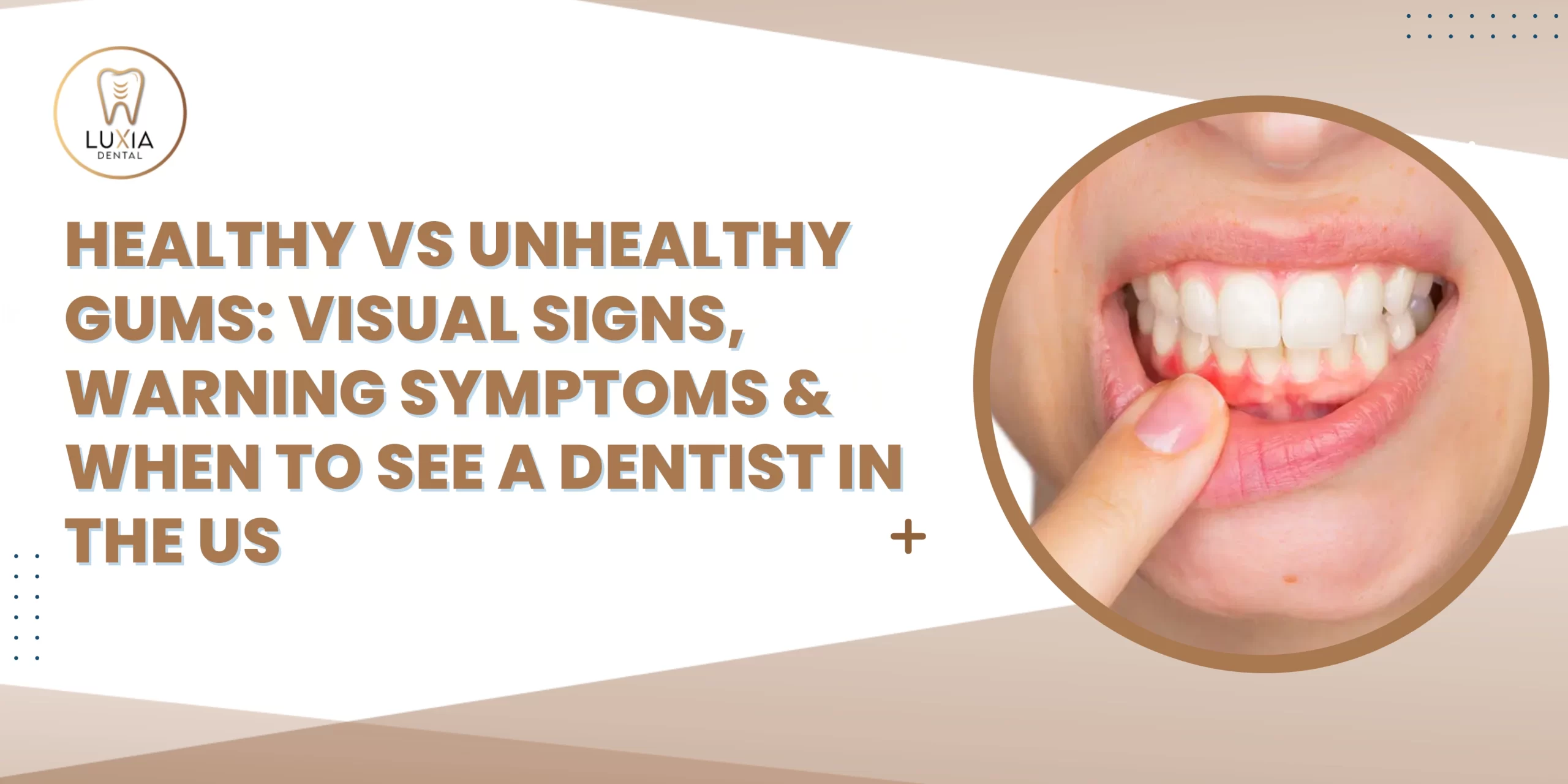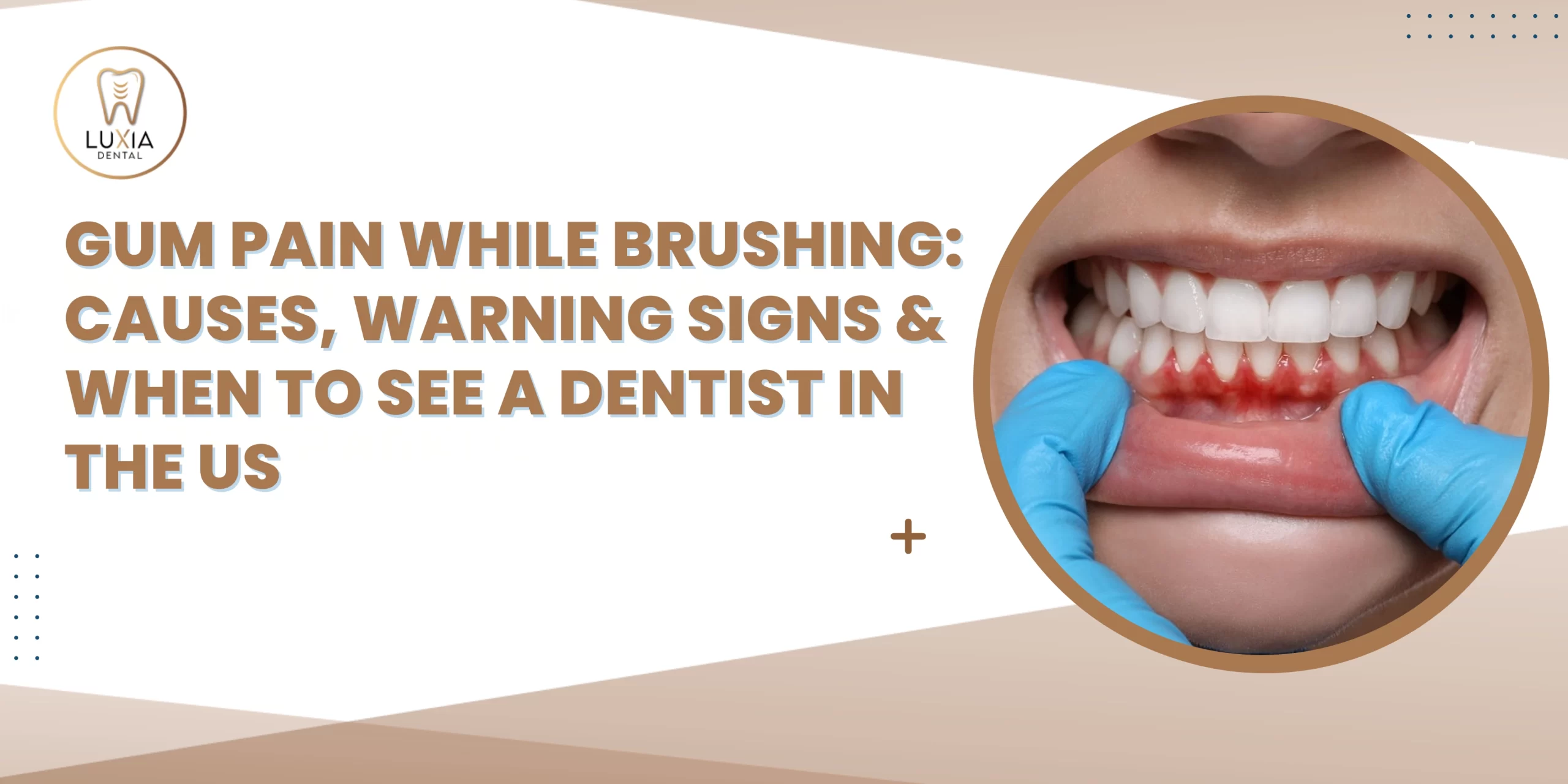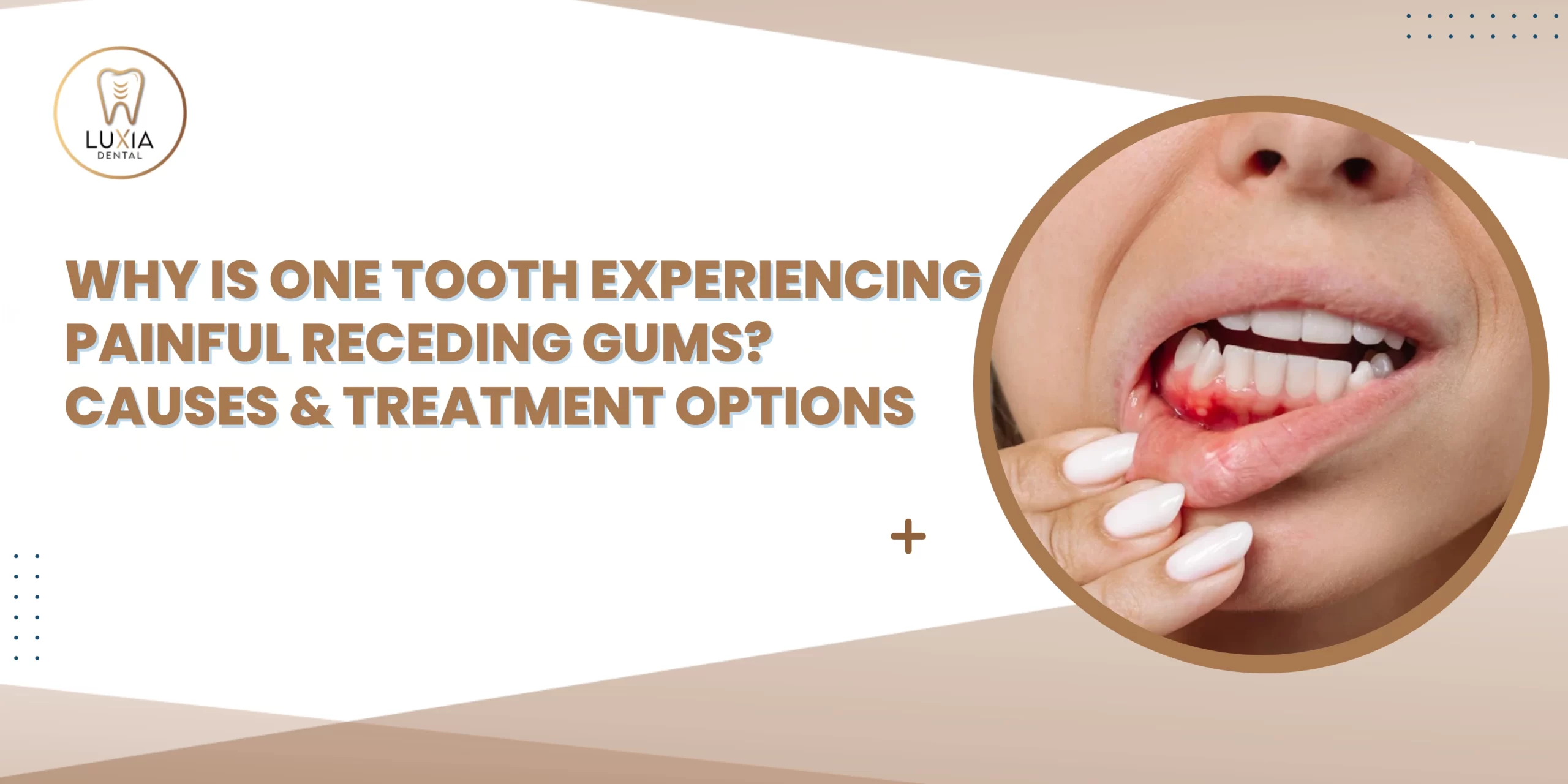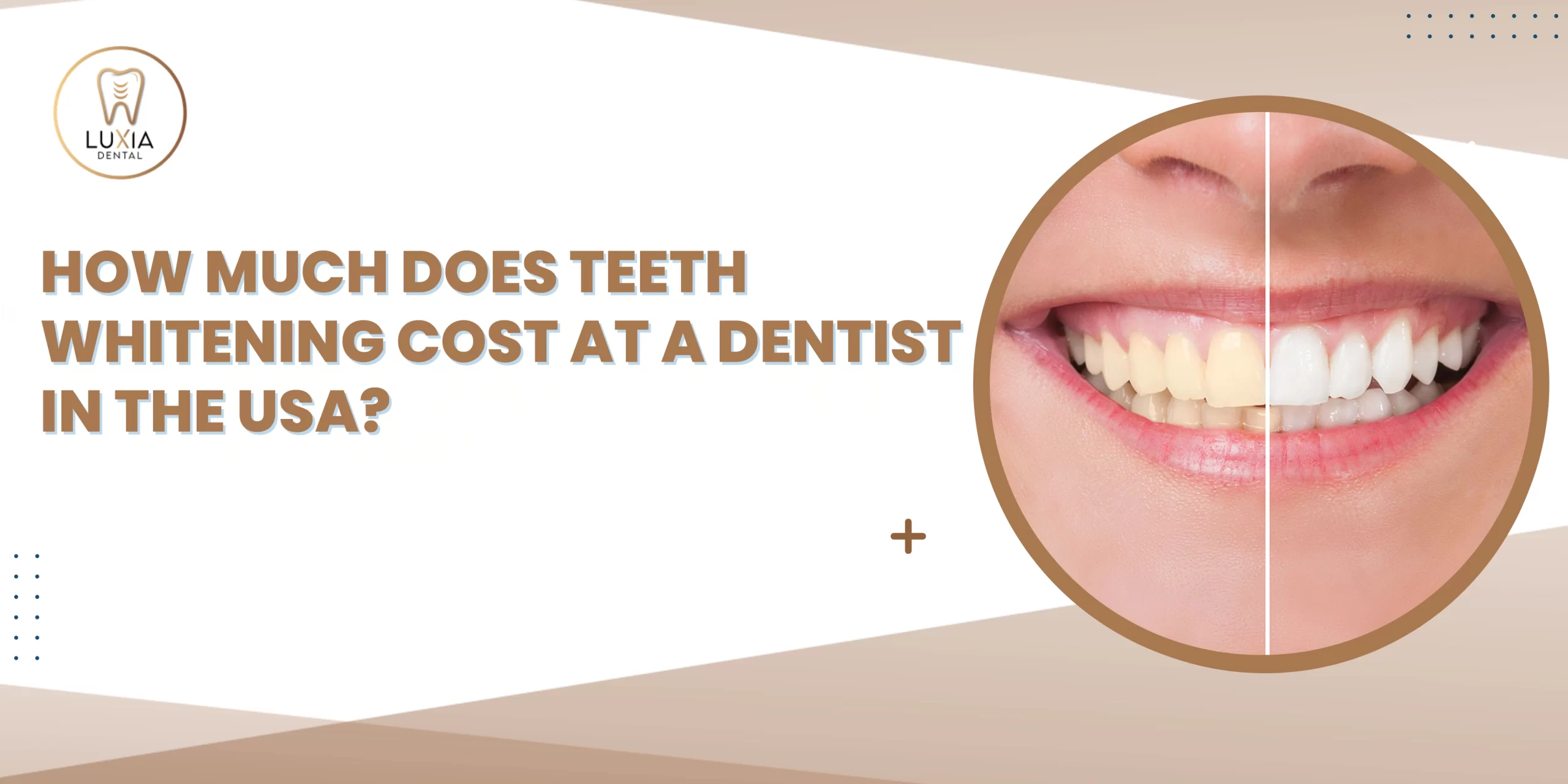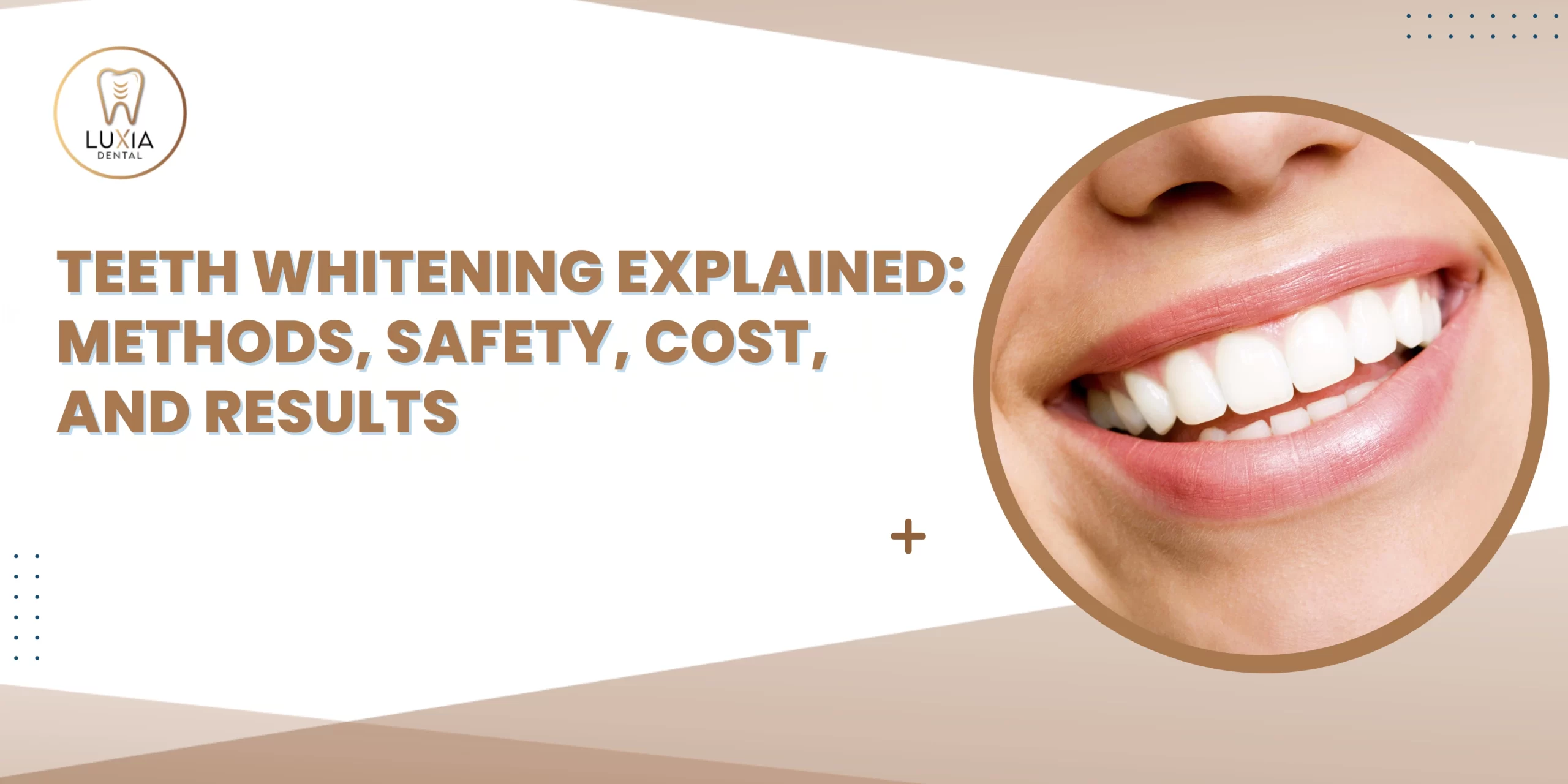For a lot of kids visiting the dentist can be stressful and anxious. The sound of drilling as well as fear of pain can make dental visits stressful for both the child and parent. However, creating a positive relationship to dental visits starting at an early age is crucial to guarantee a lifetime of healthy teeth.
The good thing is that using patience and understanding, you can employ the correct techniques, you can help your child feel relaxed and secure at dental visits.
Here’s how to make sure that dental exams is something you child is capable of taking on and possibly look at.
1. Start Dental Visits Early
One of the most effective ways to reduce anxiety around dentist visits is to begin with a visit as early. The anxiety associated with dental visits can be decreased by beginning earlier. American Academy of Pediatric Dentistry recommends scheduling your child’s first consultation with the dentist prior to their first birthday, or the moment the first tooth becomes visible.
The early exposure will help your child see dental visits as a normal aspect of their life, not a stressful experience. It also assists the dentist recognize the early signs of tooth problems and help build confidence in your child prior to when further procedures that are more involved.
2. Choose the Right Pediatric Dentist
Finding an pediatric dentist with an expertise in treating children will make a huge differences. Dental professionals who are specialists in pediatrics do not only specialize in the field of dentistry, but also in the discipline of psychology for children.
They are competent in communicating their procedures in a children-friendly language, using soft tones, and can help create an environment that’s engaging and fun.
Some clinics also have appealing decorations, toys and cartoons to make kids feel more comfortable.
When you are browsing the web you can search for “kid-friendly dentist near me” or “pediatric dental clinic” to make sure you have a wonderful experience.
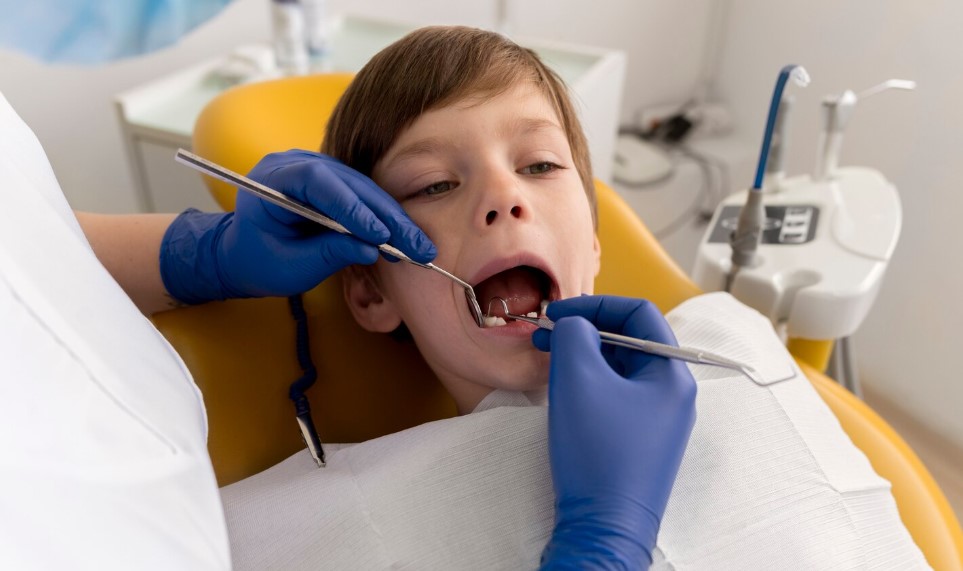
3. Avoid Using Scary Words
If you’re talking to your child about going to the dentist, you should avoid using terms like “pain,” “needle,” “hurt,” or “drill.” Instead, use simple, positive phrases. For example:
- “The dentist will take a look at your teeth and count them. “
- “The dentist will keep your smile sparkling and fresh. “
This creates excitement rather than the fear of. Your words will influence how your child’s perception of the entire experience.
4. Be a Role Model
Children learn by watching the parents of their children. If you show signs of tension or discomfort during your dental visits, the child might notice it. Make sure you are confident concerning your health at the dentist and emphasize your importance.
You might even think about having your child attend regular check-ups and observe them relaxing in a couch. If they perceive your character as strong and courageous, they’re likely to be inspired by your courage as well.
5. Use Role-Play to Explain What Happens
Prior to your appointment, prior to the appointment can be scheduled, you can make the idea of going to the dentist a bit more enjoyable by playing the role of a “dentist” at home. Utilize the mirror, a toothbrush or maybe toys to demonstrate how a dentist examines teeth and observes whether there are “sugar bugs.” This easy game can aid your child in understanding what to expect and ease anxiety around the unknown.
There are also cartoons or books for kids which discuss going to dentists in a positive and entertaining manner. They can aid in proving that dentists are friendly and helpful and are not something to be feared.
6. Bring a Comfort Item
Bring your child their preferred toy or blanket to the trip. An item that they are familiar with gives them peace of mind and ease of mind in a foreign environment. Many pediatric dentists suggest that children let their toys “get their teeth checked” also, a simple yet effective way to relieve tension.
7. Use Positive Reinforcement
After the excursion Reward your child for their bravery even when they were anxious. You could use words such as:
- “I’m very satisfied with you taking a seat in the big chair! “
- “You did a fantastic job letting your dentist examine your teeth. “
It’s also possible to create an incentive to them following the visit for example, an excursion to downtown or to their favorite snack (sugar-free of course! ). Positive reinforcement can aid them in making connections between their dentist and positive experience, which can make future visits less stress-inducing.
8. Explain Why Dental Visits Are Important
Children are usually scared of things they can’t understand. Make sure to teach your children that the role of dentists is to make sure that their teeth are strong and healthy enough to allow them to enjoy their favorite foods as well as smile comfortably and prevent any toothache.
When children know why they’re there, it can make them feel more secure and more cooperative.
9. Schedule Appointments at the Right Time
Avoid scheduling dental appointments If your child is fatigued or hungry. They might also be upset. The best time to make appointments is in the morning, if they’re awake and well-rested. This reduces stress and makes it easier for people deal with stressful situations with ease.
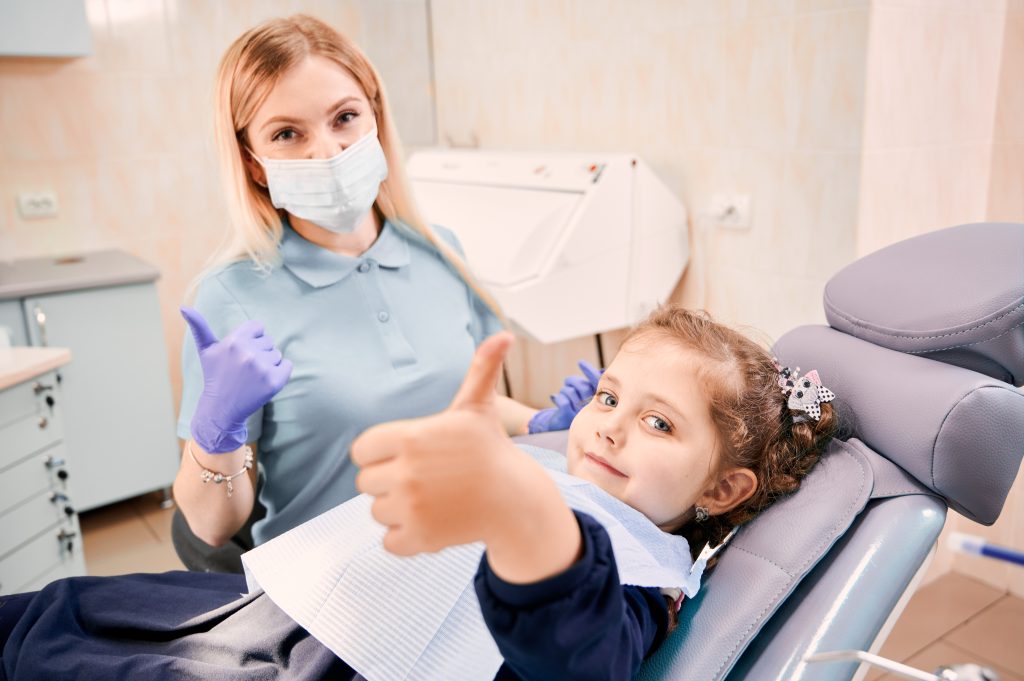
10. Stay Calm and Supportive During the Visit
Your presence can be the most soothing thing you can provide to the young child. Be calm and talk in a relaxed voice and allow your dental team to lead the process.
Pediatric dentists are familiar with dealing with children who are anxious and they can be relied upon for their expertise. If your child can sense your calmness, confidence, and peace, they’ll show your confidence.
Bonus Tip: Consider a “Get-to-Know” Visit
Before the appointment, you can schedule a short introduction in which your child can visit the dentist, sit in the chairs, and examine dental equipment (in an unhindered manner). A number of dental practices recommend this in order to build trust and lessen anxiety.
The Long-Term Benefits of Overcoming Dental Fear
The method to help your kid beat their dental anxiety doesn’t mean simply having a single visit. It’s about helping them prepare for the long-term benefits of dental health. Children who are taught that early dental visits are efficient and safe are more likely to go to the dentist.
- You should ensure that you are getting regular dental exams as an adult.
- Be sure to maintain an improved oral hygiene routine
- Do not cause problems in your teeth caused by negligence
Positive experiences today can reduce anxiety in the future.
Also read – How to Handle a Severe Toothache Before Visiting a Dentist
Conclusion
Fear of visiting the dentist for children is common, but it doesn’t need to. If you begin early, choosing an experienced dentist for children and establishing a serene comfortable and friendly setting, you can help your child be comfortable and comfortable with their dental health. With the proper approach, every dental visit provides an opportunity to teach your child on the importance of self-care and courage and how important it is to maintain the health of their smile.
FAQs
1. What is the reason that my child is scared of going to the dentist?
Children may be afraid of visiting the dentist due to unsettling sounds, sights or memories from the past. The anxiety is normal and can be quelled by determination and continued positive reinforcement.
2. At the age of what is the best time for children visit his first dentist visit?
Your first visit is suggested for children who are one year old or six months from the time the first tooth has emerged and will help your child develop confidence and feel comfortable early.
3. What can I do to prepare my child for advance of any appointment with a dentist?
Let the person about their visit positively and play with the dentist and go through books to make dental treatments fun and secure to alleviate fears.
4. What happens If my child is crying or refusing to talk at dental appointments?
Relax and let the dentist utilize gentle methods. Dental professionals who are trained in pediatrics can help anxious children in an appropriate way.
5. What can I do to make the next visit to the dentist more pleasant for my baby?
Be sure to check in often and praise your child after the conclusion of every visit, and create positive connections with dental visits so that visits are less stressful in the long run.


